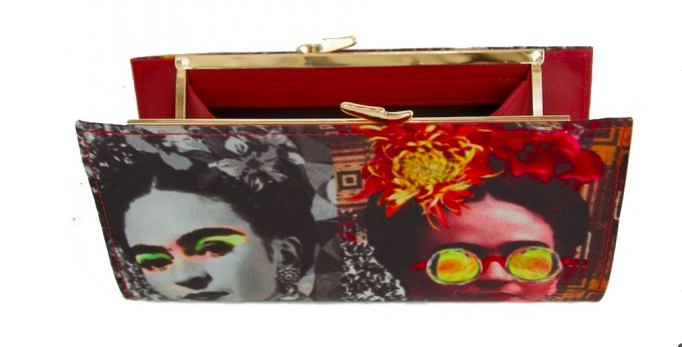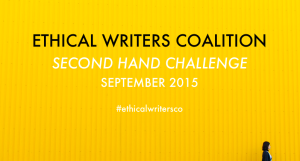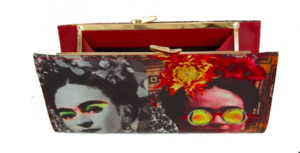You caught me. I skipped my cool brands post in October. That’s because I was searching for really standout pieces, some of which I’ve included in my holiday gift edit. I promise your wait was worthwhile.
This month, I found an architectural necklace to shine at your holiday parties, a boot/clog hybrid you’ll want to wear everywhere, and a new line of organic loungewear designed to take you from downward dog to daily life.
A note: This post contains some affiliate links.
Victoria Road
What You’ll Find:
A concise collection of modern designs for women and children that celebrates artisans and craft traditions in emerging markets.
Victoria Road is a brand driven by design and fueled by women entrepreneurs. The company also adheres to an “inclusive supply chain.” Today, this term, and ones similar to it, get thrown around loosely by marketers, but Victoria Road takes it seriously. They back up their claim up through a commitment to full vertical integration, meaning their production is housed under the one roof and closely monitored. This happens at their facility in Lahore, Pakistan, while their sales, marketing and styling is run out of an office in NYC.
Ethics: People + planet
Victoria Road is committed to upending how traditional supply chains are structured.
In recent years, increased consumer demand has put pressure on brands to place large orders with suppliers, keep overstock inventories, and be ready to ship in an instant. This type of supply chain creates an abundance of unused fabrics and garments that bottleneck and eventually turn into pre-consumer waste.
Victoria Road is changing this by:
- Employing full-time, in-house design, sourcing, tailoring and logistics teams and partnering with reputable mills and small-business suppliers
- Up-cycling their own scrap materials
- Helping local designers and artisans enter new global retail and wholesale markets
- Prioritizing a membership with the the Fair Trade Federation.
You can read more from Victoria Road’s founder, Megan Brosterman, on why she decided to take production in house.
Highlight Piece:
The Rema Coiled Necklace. The green gem is bold, but not cliche.
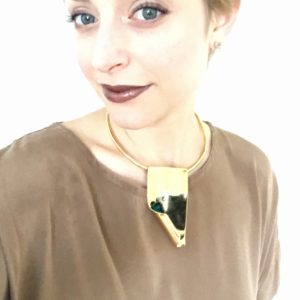
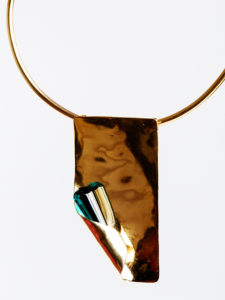
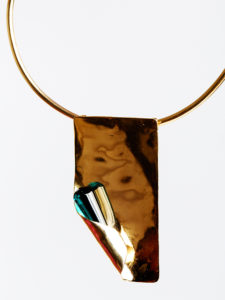
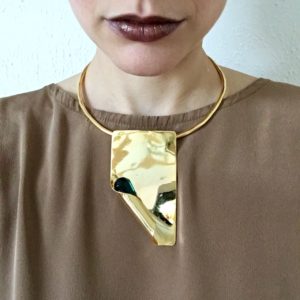
I also really love The Frida Silk Clutch and The Popinjay Anfa Envelope Clutch.
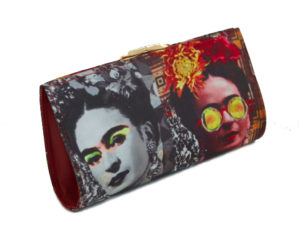
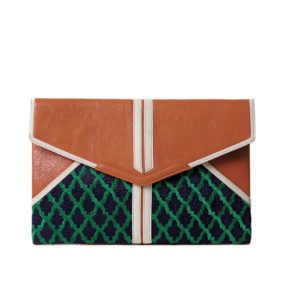
Victoria Road loves The Peahen readers and is offering 30% off all handbags and accessories with code PEAHEN30. Get them before they’re gone because these styles won’t be restocked!
Nisolo
What You’ll Find:
Contemporary leather classics rooted in heritage craftsmanship.
When I started writing about ethical fashion and changing my wardrobe, I recognized that I couldn’t give up leather. I formed this stance because I don’t think vegan leathers are better alternatives to animal hides. The synthetics they’re made from cause environmental harm and are more prone to greenwashing (more on that here). Because of this, I seek out brands that use humane leather production. I look for surplus (a byproduct of the meat industry), alternative and reused leathers and brands that have responsible waste, recycling and dying practices.
Nisolo is a pioneer in ethical leather, so naturally, they’ve been a partner of Peahen since the beginning. But this is the first time I’ve been able to review a pair. If you’re into minimalistic luxury with a laid-back vibe, you will live and die by their accessories.
Ethics: People + Planet
Nisolo’s ethical reach is far and deep. The team supports fair wages and a healthy work environment for a network of over 500 independent producers, artisans and manufactures spread across Peru, Mexico, Nairobi, Kenya, Trujillo and the US (they’re Nashville based).
Sounds expensive, right? Actually, Nisolo’s pricing is surprisingly palatable. Their mantra captures it best:

As for sustainable manufacturing, they say this:
We responsibly source our leather from tanneries committed to the ethical treatment of animals (always a byproduct of the meat industry) and the implementation of eco-friendly waste disposal systems.
But I wish they spoke more about this commitment. It’s really important, especially in our current political environment. We won’t know until the new administration takes action, but environmental regulations could be revoked or softened. If that happens, it will be up to companies and individuals to lead the charge on sustainable innovation, and they’ll have to do it in the absence of incentives.
My advice to Nisolo: make sustainability a bigger part of your story so other brands and consumers can learn from you.
Highlight Piece:
The Sofia in Noir.
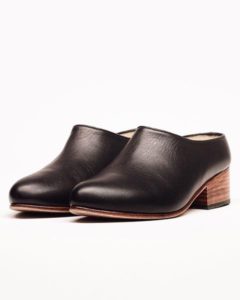
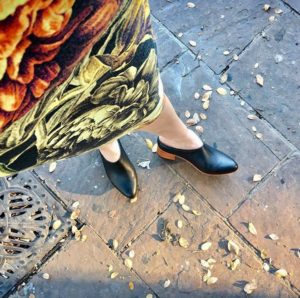

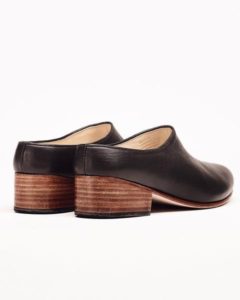
Nisolo sent me this pair to review and they’re comfy, supportive and versatile. The heel has just the right amount of height and doesn’t overpower. My favorite way to wear them is with vintage Levi’s and a chunky knit.
PonyBabe
What You’ll Find:
A four piece collection of effortless basics that drape and gather in a really special way. Think off duty ballet girl.
A few weeks ago, Rachel, the founder, was kind enough to host me and a few friends at her temporary studio in Austin to preview the new collection. I tried on the wrap cardigan and it was unexpectedly elegant. I couldn’t decide if I wanted to break into a Swan Lake routine or snuggle up for a nap. Tough decision, really. The whole collection strikes a nice balance between chillwear and elevated basics. And it’s not the least bit athleisure-y. It’s the collection you never knew you needed.
Ethics: People + planet
PonyBabe is woman owned, made with organic cotton and bamboo and manufactured in the USA (Brooklyn to be specific). The line also uses recycled and biodegradable packing. More on ethics here.
Highlight Piece:
Hands down, The Cardigan.
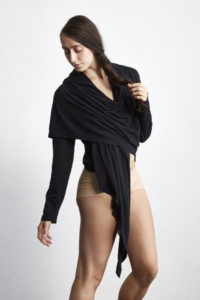


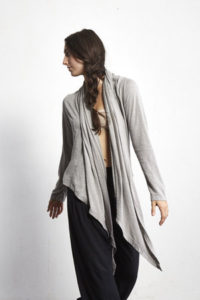
I Read
These were the grand ideas in fashion this year.
What you should be asking ethical fashion companies.
A primer on peace silk. Because it’s all I’ve wanted to buy lately.
An essay on modern feminism. This read is controversial if you’re a staunch feminist. Lately, I’ve been in the mood for challenging views and my feelings about feminism have become more fluid. I think it has a lot to do with the violence, inflated rhetoric, and hate speech that are all starting to define our time.
A retro but good article on waste, freegans and supply chains.
A thoughtful essay on fundamentalism.
I Listened
Conscious Chatter: Fashionkind, Luxury + Sustainability.
Can ethical fashion engage the masses?
Upcoming
My eco-trip to Costa Rica is this week with my EBN buddies at Life+Style+Justice and Mochini! Stay tuned for the stories on Instagram. I’m so excited Sumak Travel is hosting us!
*Victoria Road partially sponsored this post, which means the necklace was gifted and I was compensated for my time reviewing and editing. The review is still 100% my own candid opinion. I do the homework so you can shop informed.

